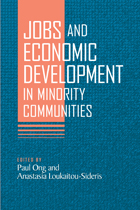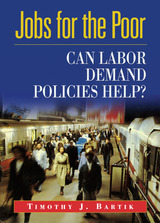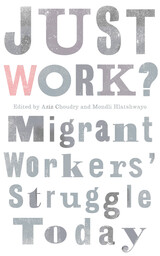5 start with J start with J



"So this is where the brain starts to shut down and that which we treasure most, our personal identities, begins to slip away....I suppose I should be thankful; it's a paycheck." With this disturbing sentiment, Kevin Henson begins a voyage into the world of "the temp." For several years while a graduate student, Henson logged in thousands of hours as a temporary worker in offices throughout Chicago's Loop. Those experiences, and numerous interviews with other temps and temporary counselors, create a vivid and often disheartening picture of working 9 to 5 behind the receptionist's desk, telephone console, or data-entry terminal.
In their own voices, the temps in this book lament the frequently demeaning and mundane nature of many assignments:
•"You're not paid to think."
•
"Temps don't have names; they are just 'the temp.'"
•
"They always harass me...because I just wear a sweater and slacks."
•
"The worst part is telling people what you do. They always ask 'When are you going to get a real job?'"
Where the temporary service industry is quick to extol the virtues of temp work—mainly its flexibility—Henson and his cast of temps reveal the tacit pressure to persevere through an unpleasant assignment, to accept every assignment offered, and to readjust personal lives to do so. Outsiders to the established office culture and hierarchy, most temps are asked to do low-skill work and leave more detailed or complicated tasks for the return of the permanent employee.
Whether temp life is a preferred choice or grudgingly accepted as the last option when "real" or permanent work is unavailable, all temps must confront issues of gender, identity, and self-esteem. Henson examines these issues, documenting the concerns and interpretations of temp workers about their own work lives.

The fact that men and women continue to receive unequal treatment at work is a point of contention among politicians, the media, and scholars. Common explanations for this disparity range from biological differences between the sexes to the conscious and unconscious biases that guide hiring and promotion decisions. Just One of the Guys? sheds new light on this phenomenon by analyzing the unique experiences of transgender men—people designated female at birth whose gender identity is male—on the job.
Kristen Schilt draws on in-depth interviews and observational data to show that while individual transmen have varied experiences, overall their stories are a testament to systemic gender inequality. The reactions of coworkers and employers to transmen, Schilt demonstrates, reveal the ways assumptions about innate differences between men and women serve as justification for discrimination. She finds that some transmen gain acceptance—and even privileges—by becoming “just one of the guys,” that some are coerced into working as women or marginalized for being openly transgender, and that other forms of appearance-based discrimination also influence their opportunities. Showcasing the voices of a frequently overlooked group, Just One of the Guys? lays bare the social processes that foster forms of inequality that affect us all.

READERS
Browse our collection.
PUBLISHERS
See BiblioVault's publisher services.
STUDENT SERVICES
Files for college accessibility offices.
UChicago Accessibility Resources
home | accessibility | search | about | contact us
BiblioVault ® 2001 - 2024
The University of Chicago Press









